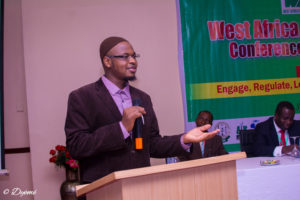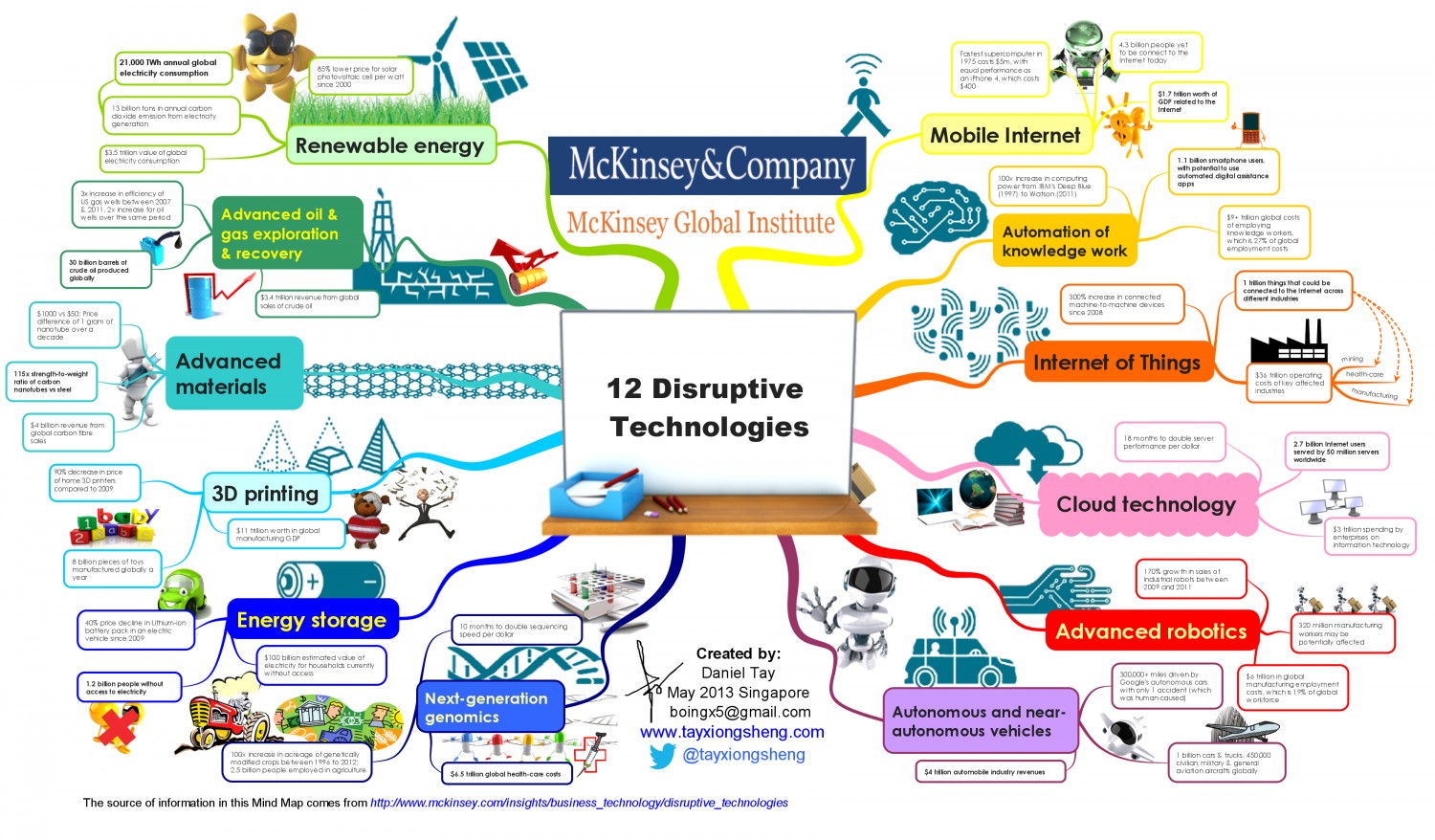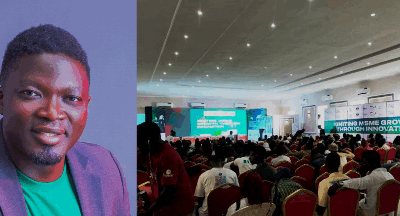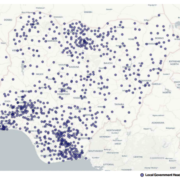By Isa Ali Ibrahim Pantami, PhD, FBCS
I am highly honored to be here in Lagos to deliver the speech on “Disruptive Technologies and Limits/Challenges of Regulations” before you distinguished audience at the 9th edition of the West Africa Convergence Conference. Developing and Regulating Information and Communication Technology is the primary responsibility of National Information Technology Development Agency and it is a known fact that majority of the disruptive technologies ever created in the world today are enabled by ICT. For instance, disruptive technologies like the semiconductor microchip, Personal Computer (PC) and the Internet are products of the ICT innovation that are transforming the way we live and work, enabling new business models, and providing an opening for new players to upset the established order. Disruptive technologies have the potential to impact growth, employment, and inequality by creating new markets and business practices, needs for new products & infrastructure and different labour skills.
“NITDA understands the importance of developing and promoting local innovations. There is a correlation between the empowerment of innovation and industrial revolution of a nation.”
The focal point of disruptive technology is to challenge established business models and radically transform products and services. The possibilities of digital technology are evident in the top four global companies by market capitalization: Apple, Google, Microsoft and Facebook. From web to mobile technologies, big data to machine learning, social media to advanced virtual reality, blockchain to bots, IoT to cloud computing, advanced robotics to autonomous vehicles, next generation storage to 3D printing, seemingly there’s no end to what technology can enable or improve. These technologies are creating new possibilities and innovations that are changing global economy and society than ever before.
Being part of the global community, Nigerians have their own share of technological disruptions, which has both enhanced the lives of Nigerians as well as caused some frictions between the governments and the governed. Reseachers have argued that technology innovation creates both winners and losers — but that the society as a whole benefits. For instance, transportation in Nigeria is experiencing some level of disruption. Uber – a global transportation platform – has come to disrupt the transportation business across the globe. Its adoption in major Nigerian cities like Abuja and Lagos is disrupting the existing taxi and car hire services. We are also having some indigenous affiliations in transportation springing up. As an example, “taxify” is competing with Uber. In the last one and a half decade, the disruption caused by the deployment of telecommunication/mobile technologies is increasingly impacting on the country’s socio-economic growth. GSM lines displaced Landlines. For instance, the web and smart phones are disrupting traditional way of banking with the introduction of online and mobile banking methods.
“Disruptive technologies have the potential to impact growth, employment, and inequality by creating new markets and business practices, needs for new products & infrastructure and different labour skills.”
The likes of Jumia and Konga are using web technologies to disrupt retail markets. Aviation and hospitality sub-sectors of the economy are not left out with platforms such as Wakanow.com and hotels.ng disrupting these niche markets while Blockchain is making wave to disrupt the way FinTech market works. In all these, digital disruption is creating both winners and losers, but the society and the economy as a whole are benefiting. Encouraging technological development is clearly in governments’ interests, as it encourages competition which leads to improved products and services.
However, regulating disruptive technologies has been a major challenge to governments around the world. Regulation especially in the area of Information and Communication Technology, by the turn of the century, started to experience rapid profound challenges, as an unprecedented degree of technological innovation began to overturn the industry. The fact remains that technological changes and innovations do outgrow regulatory responses. Nigerian governments are not exceptions. One typical example of disruptive technology that is widely used in Nigeria is the social media. The social media offers a unique opportunity to reform the relationship between government and citizens. The traditional media is being disrupted in Nigeria. Print media, radio and TV stations are using social media as a game changer and strategy to promote their businesses and reaching out to their audience.

“Regulating disruptive technologies has been a major challenge to governments around the world” – Pantami
At global level, social media innovations are changing political dynamism and modern-day governance. The recent occupy protest movements around the world rely heavily on the use of this technology platform, and the reach that it provides has made such movements global phenomena. For example, Barack Obama innovatively used social media to transform the political landscape in the United State in 2008. That was the first political campaign in history that truly harnessed the power of social media to spread a political message, garnered support and get people engaged. The Arab Spring is perhaps one of the best-known examples of how social media can change the world. The wave started from Tunisia and moved across the Middle East. The Tunisians were able to overthrow longtime dictator Zine al-Abidine Ben Ali a few weeks after the protests began. Hosni Mubarak stepped down after just 18 days of mass protest.
At the shore of our country, we all know the profound role Social Media played in the 2012 fuel subsidy announcement. It contributed to the success of the 2012 protests organized by a coalition of civil society organizations and labour unions in response to removal of subsidy on Petroleum Motor Spirit (PMS). It also kick-started the conversation of ‘Occupy Nigeria’ (#OccupyNigeria). The social media, notably Twitter and Facebook, became rallying points for Nigerians at home and in Diaspora to give the #OccupyNigeria protest wide exposure. The government was later forced to a consensus. The unfortunate event of Chibok girls’ abduction by the Boko Haram terrorist group led to the “BringBackOurGirls” campaign (#BringBackOurGirls). Social media was used to attract global attention. Many prominent personalities including Michelle Obama and Malala Yousafzai joined the campaign to protest against the kidnapping.
Let us again take ourselves to a memory lane; the role social media played in the 2015 general election. It played a very critical role in bringing political change, brought about electioneering innovation and deepened government-citizen engagement. The platforms were used for opinion polls as well as circulating election results before final results were released by INEC. Disruptive technologies are changing the established order.
Because of the fast changing nature of disruptive technologies, they are highly unregulated. For example, concerns have been raised about the potential challenges of social media, such as security and privacy of personal information; impersonation; use to propagate hate speeches, false news, disseminate incorrect information about political office holders and administrators among others. In the recent past, blockchain technology has posed to be a major challenge and headache to financial regulators around the world. Disruptive technologies are, by their nature, challenges to regulators. Standards, Guidelines and Regulations are becoming the concern for policy makers knowing that the objectives of regulatory policies should eventually lead to support of the welfare of citizens.
“NITDA is more focused on developing the IT industry through regulation while avoiding stiffening innovation…. In exercising its regulatory mandate, the Agency has also established the Office for ICT Innovation and Entrepreneurship (OIIE) with the responsibilities of continuing to nurture, cultivate and expand the ICT innovation, disruption and entrepreneurship in Nigeria.”
It can be vehemently argued that regulatory policies tend to be reactive to technological change. The society in itself, values innovation, sometimes for its own sake and does not want regulation to be technologically regressive. As a result, intense public debates about whether they are compatible with accepted social and legal norms are triggered. A problematic aspect of the process of diffusion of new technological standards is how the regulator can ensure successful implementation of such standards within the IT ecosystem and the society at large.
To this end, there is a need for orchestrated policy frameworks and regulatory strategies to ensure effective usage of disruptive technologies. The academic literature has however given insights into how disruptive new technologies can be regulated. Tim Wu in his paper “Agency threats” suggested that “There are three main ways in which agencies regulate: rulemaking; adjudication; and informal tools of guidance, also called nonlegislative or interpretative rules. Over the last two decades agencies have increasingly favoured the use of the last of these three, which can include statements of best practices, interpretative guides, private warning letters, and press releases”. Wu argues that non-legislative measures, specifically threats, are valuable tools for regulators facing new industries or technologies where there are still many unknowns.
Furthermore, Nathan Cortez, in his paper “Regulating Disruptive Innovation” takes a more skeptical view of the use of threats, noting that they can fail in some circumstances, but nevertheless embraces the need for a flexible regime when a new technology is emerging. The article argues that “regulatory agencies need not be so tentative with innovations. If agencies are concerned about regulating prematurely or in error, then they can experiment with timing rules, alternative enforcement mechanisms, and other variations on traditional interventions. If agencies do choose to proceed by making threats, then they should use them as a short-term precursor to more decisive, legally binding action and avoid relying on them as a long-term crutch”.
It is then suggested that regulators should thus makes four related types of decisions:
Timing: When should the agency intervene, if at all? Does waiting necessarily generate a better informational basis on which to regulate? What are the drawbacks of waiting?
Form: Should the agency regulate via rule, adjudication, guidance, or some alternate form? Given the costs and benefits of each, which best accommodates the uncertainties of the innovation? Does form even matter?
Durability: Should the agency’s intervention be permanent, or temporary, or conditional? How long should it endure? And are there ways to better calibrate regulatory interventions to the innovation?
Enforcement: How rigorously should the agency monitor and sanction noncompliance? How much should agencies temper enforcement against novel products, firms, or industries?
To address these in our own peculiar manner as a country, the National Information Technology Development Agency (NITDA) has adopted an inclusive principle in its rulemaking process. The Rulemaking Process of NITDA uses robust and transparent procedures that accommodate broad public participation. It is designed to examine issues of broad public concern. As such, an inclusive rulemaking process creates room for industry players to collectively work out more efficient Standards, Guidelines and Regulations than making individualized policies. Such regulatory instruments are widely published by NITDA for public comments.

“Being part of the global community, Nigerians have their own share of technological disruptions” – Pantami
NITDA is more focused on developing the IT industry through regulation while avoiding stiffening innovation through regulation. In exercising its regulatory mandate, the Agency has also established the Office for ICT Innovation and Entrepreneurship (OIIE) with the responsibilities of continuing to nurture, cultivate and expand the ICT innovation, disruption and entrepreneurship in Nigeria. The establishment of OIIE as a Special Purpose Vehicle (SPV) will create enabling environments to foster innovation and entrepreneurship across the country.
Furthermore, NITDA understands the importance of developing and promoting local innovations. There is a correlation between the empowerment of innovation and industrial revolution of a nation. Therefore, NITDA is committed to promoting and developing local content in Nigeria as part of its regulatory mandate. The Office for Nigerian Content Development in ICT (ONC) was also established as a Special Purpose Vehicle (SPV) with the responsibility of developing and regulating a truly indigenous ICT industry through the implementation of the Local Content Guidelines.
In conclusion, with the emergence of new technologies, industries have converged and new markets are emerging; companies are now operating across multiple regulated markets. Therefore, regulatory responses to disruptive technologies require synergy among different regulators in the ICT industry. We must continue to collaborate and share experiences on what works and what does not. On this note, I urge the political leaders, policymakers and captains of industry here present to leverage on the possibilities digital technologies are offering and create enabling environment that stimulates disruptive innovations that can change our society and economy for the better. I also urge our young innovators and techpreneurs to take advantage of these emerging technologies for job, wealth and value creation. I hope the conference will come up with innovative ideas, workable and implementable recommendations that would help and enhance our economic development through adoption and adaptation of disruptive technologies in Nigeria, considering our peculiarities as a country.

Director-General/CEO of the National Information Technology Development Agency (NITDA), Dr. Isa Ali Ibrahim Pantami, made this presentation Wednesday, 29th November 2017 at the 9th edition of the West Africa Convergence Conference (WACC), Sheraton Hotel, Ikeja, Lagos.





























